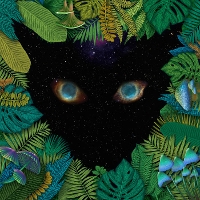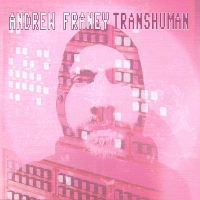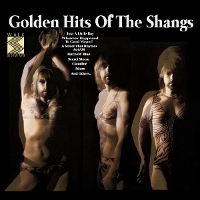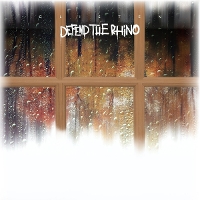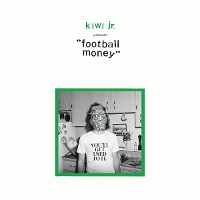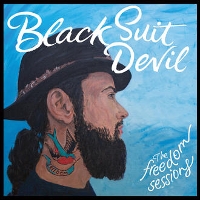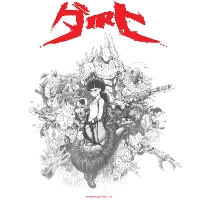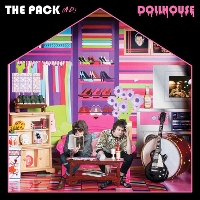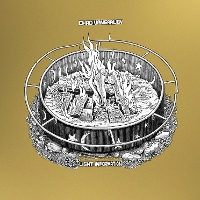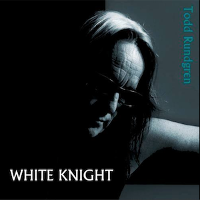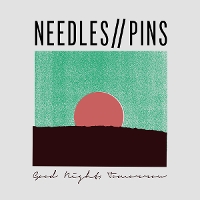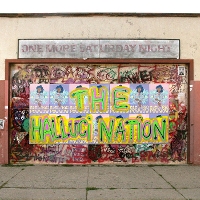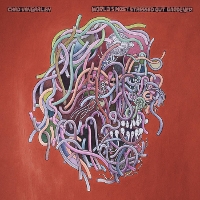When the Music Stopped

Joelle May
It is not just musicians who are idled by the Coronavirus. A whole industry of people who support the live music scene are put on the sidelines too, says industry veteran Joelle May.
When COVID-19 shut down – well – everything, the live music scene came to a shuddering halt. Tours were cancelled, bands were called home and venues closed in the space of a few days. Musicians, left without their usual outlet took to Facebook Live and other platforms to perform, usually solo, from their homes.
But for many other music industry workers, the shut down has left without work or income. The shutdown of the live music and the venues that support it is likely to last for a long time and will be one of the last sectors of the economy that can expect to return to normal. Publicist and music industry veteran Joelle May has worked for many years behind the scenes helping to bring artists and fans together at big theatre shows and at nightclubs, bars and cafes. She has been thinking about the people in promotions, technical trades and at bars and venues who find themselves suddenly adrift or out of work with no clear end in sight.
Magnus Thyvold: So you have a pretty good idea about how the pandemic is affecting the Music Industry?
Joelle May: Yeah there are a lot of aspects of the industry that are affected. A lot that go sort of unnoticed for the common consumer. There are a lot people involved in just putting on one show that are behinds the scenes.
MT: Can you give is as picture of who is working behind the scenes that people might not be aware of?
JM: Well, for one show I would estimate that maybe 30 are involved in that one concert at a theatre or music venue. That starts maybe up to a year in advance and at least several months in advance, when an agent books a show, deals with the venue buyer, usually there is someone else dealing with administration, contracts and whatnot. I work more in the marketing end of things, so there is marketing people, box office people.
Then you get to a show. There are people taking your tickets, security guards, bartenders, food service people if there is food. There is a crew that comes in and sets up a PA and there’s riggers hanging speakers stacks.
There’s so many people who are involved. Right down to the cleaners who come in after everybody is done and clean up all your fun.
MT: As we know the live side of the industry has come to a shuddering halt. What is happening to all these people.
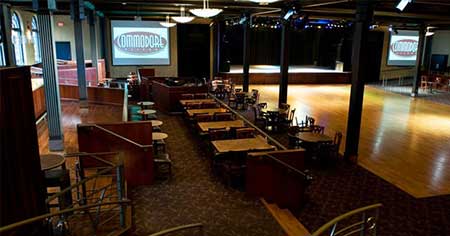
Venues like the Commodore Ballrooom are sitting empty and quiet.
JM: These are all the people who are now out of work now. Tour managers, people like that. Sound techs, lighting techs, stage riggers and all those other people. There is nothing for them to do. And the music industry in general, as we all know, revenues have been down in the music industry due to streaming and downloads and whatnot. So sales are down and the live scene is the only income that the music industry has left and now that has been decimated as well.
So it is wonderful that the artist can go direct to there fans and while I would never encourage them to not do that it sort of cuts out a huge industry of people that work really hard to bring these artists to you.
MT: Even as artists are reaching out to fans, I can imagine there isn’t much money to be made from doing Facebook Live.
JM: No, of course not. That sort of stuff, you’re looking at donations but it isn’t an income replacement.
MT: I don’t even think there is a revenue stream associated with that.
JM: No I have seen some artists put up a donate button, but it is not a revenue stream. It is a promotional stream. It’s hopeful in these times. It is good to keep everybody’s heart full, but it is not a replacement for a decimated industry.
MT: What does this feel like for you at this point? It sounds like we’re are only at the beginning of this, particularly with respect to anything involving events.
JM: Yeah, my work is all about gathering crowds of people. We realize that it is going to be a long haul and there is going to be some suffering. I am trying to take it day by day at the moment. Thankfully, I am still working – mostly I am working on cancelling things right at the moment, but I am still employed so that is a good thing. But may people aren’t and many people have been stopped dead since the beginning of March. Thank goodness for the support systems that have continued to be expanded by the by the Canadian government that are at least holding the line for us now.
I am really not sure. I wish I could say when we might actually get back to working.
MT: What is the mood among yourself and your colleages looking forward?
JM: We are all trying to look forward to the future. The music industry has been through a lot of knocks through the years and everybody finds a way to get through it. And so the attitude I have seen overwhelmingly is that people are just going to do their best to weather the storm and come through it on the otherside. I have seen a lot of support.
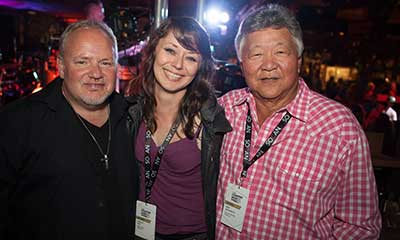
Joelle May with her colleages from the Sakamoto Agency
Paul Biro and Ron Sakamoto.
MT: This could go on for as much as a year with respect to live events. Is there a possibility it could do real lasting damage to the industry.
JM: Oh, I think it probably will. That is almost inevitable really. Not everyone has the means to carry though which is an unfortunately reality, but we are already seeing music venues close and things like that. Festivals will pop up for a few years and can’t make it financially and end up folding. It is going to to be a smaller and more competitive market when we come to the other side of this.
MT: I imagine festivals, in particular, will be hard hit because they are so dependent on the revenue for this year to give them the capacity to organize something for next year.
JM: Absolutely, A lot of festivals will struggle to come back.
MT: Without the opportunity to tour in support of releases and draw attention to what they are doing that way, Virtual is great and you can get the word out quickly but you can’t create the sustained interest in the way a tour. How is that going to affect bands with their releases and the rest of the industry on that side of things?
JM: I think it will for sure. Because everyone needs something to pay attention while they are locked up in their homes, but touring gives artist the opportunity to gain fans they wouldn’t otherwise have gained just through online distribution. So I think it is really going to slow down things. Personally, I was listeningto the new Fiona Apple yesterday and loving it and I am sure that will become regular in my rotation. But for emerging artists and lesser known artists or artists that were just building up a good career, it is going to stop tings dead in their tracks and they will have to pick back up where they left off next year.
MT: We could see a real hollowing out of that mid-level artists and down who really have to work for the attention in favour of this big artitsts...

Refused live (but not at the Commodore)
JM: The other end of that is, say cafes and bars open up before we are allowed to have larger events, then maybe smaller artists and indie artists who don’t have large followings built up yet {will have a chance]. Maybe there’s an opportunity for them sooner.
MT: Hopefully there is some sort of silver lining to come out of this.
JM: (laughs) That is one I can think of.
It is great to see the things happening online but that is not going to sustain things in the long term.
It is not a replacement for the experience of seeing a band play on a stage live...The last show that I went to before everything shut down was pretty monumental. It was at the Commodore Ballroom I saw Refused and I danced and headbanged and it was a blast. So I am really glad I got that one in.
MT: Good luck with the future and hopefully there is a way forward for as many in the industry as possible – artists and all the people working hard behind the scenes.
JM: Absolutely, hopefully a year from now we’ll talk again and be reflecting back on this interview and saying, well we made it and now we are on the other side. That is the hope.

